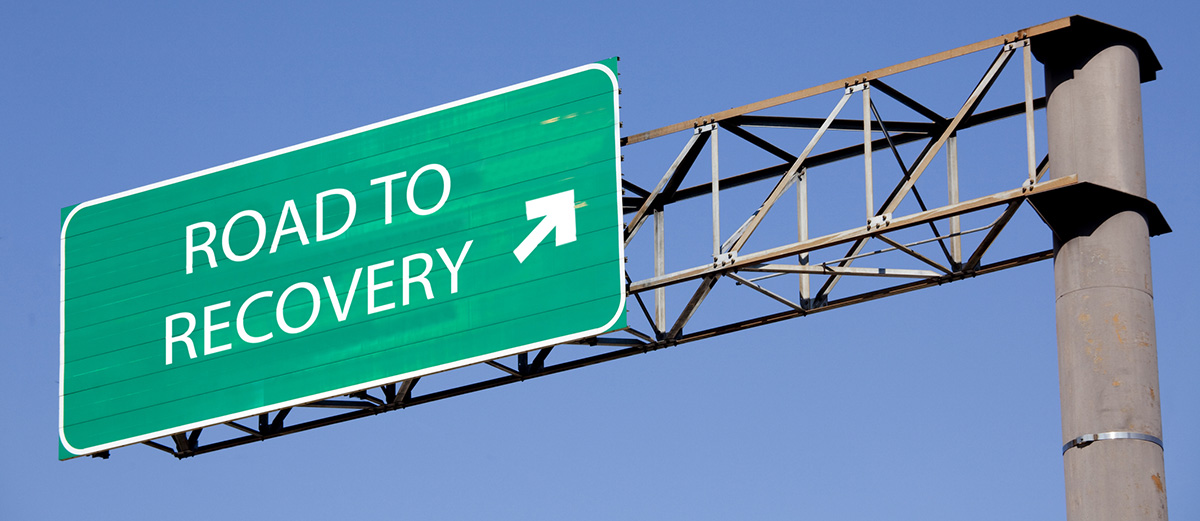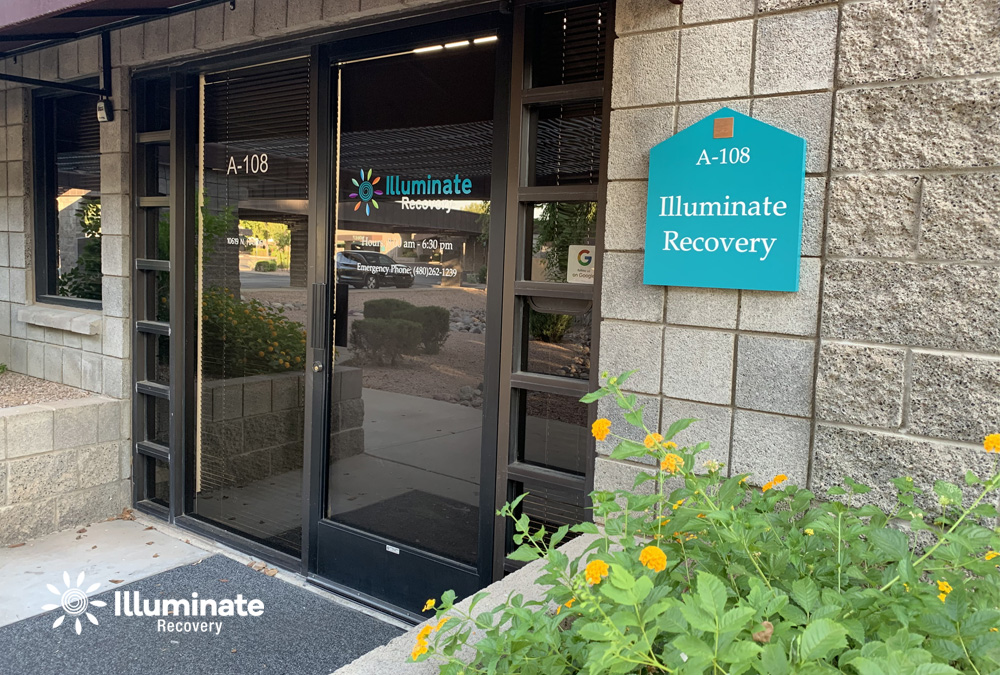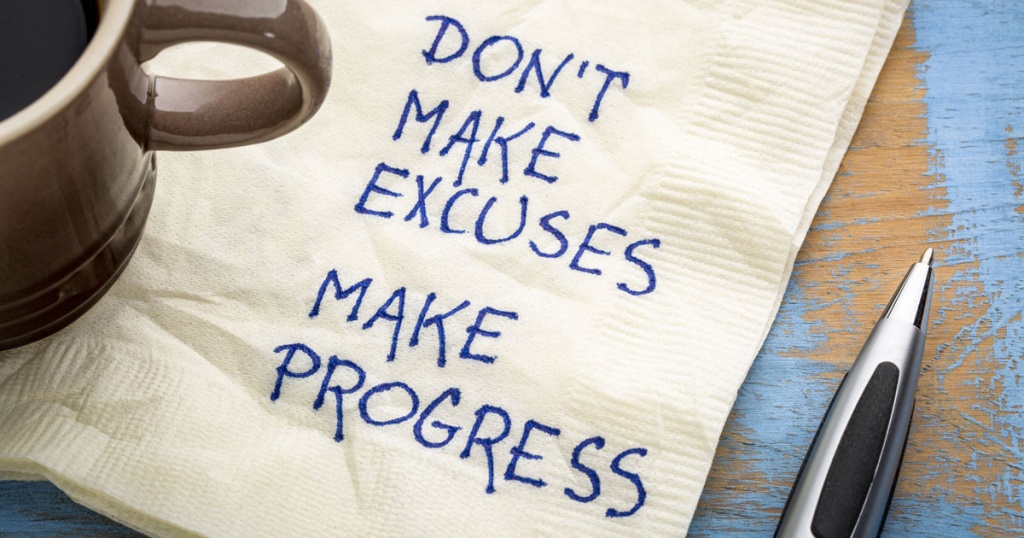Alcohol and drug dependency impact more than just the lives of those who suffer from addiction, and any dependency impacts family, friends, and even coworkers, among others. While addiction is truly a medical disease that requires treatment, ongoing social stigmas may stop people from seeking the help they desperately need.
Many loved ones want the person they love to seek treatment, but it is always in the hands of the person battling dependency. When they are confronted, these people offer an endless list of excuses for avoiding rehab.
When tested by facts and reality, these excuses often crumble quickly. When battling addiction, there needs to be a shift in reasons for not going to rehab to reasons why rehab will give you a true chance at real sobriety. However, there are treatment options to overcome most of the excuses for avoiding recovery.
Excuses for Avoiding Rehab
The idea of going to rehab can be frightening for several reasons. Perhaps most terrifying is that they won’t have the substance they have come to rely on – both mentally and physically – to get through the day. Secondarily, going to rehab means admitting to dependency. Some aren’t ready to face that truth, and others are afraid of the stigma that might accompany that acknowledgment. These stigmas make dependency look like a personal failure and not a disease. If the addiction is seen as a personal failure, then going to treatment for some feels like an acknowledgment of that failure. Overcoming stigma is a major factor in considering the benefits of a rehabilitation program.
Those suffering from dependency will likely have reasons for not going to rehab. However, most of those reasons can be overcome, especially with outpatient treatment as an option. Some of the most common excuses we hear are:
I Don’t Have a Problem
This phrase is usually the first response given to friends, family, and maybe even yourself. Someone suffering from addiction may not have the self-awareness to consider why others would reach out if that was truly the case. Dependency is not a personal failure, but it is a problem.
I’m Not Like Those People
People suffering from dependency generally don’t see themselves as addicts. We are all shaped by experience, knowledge, and understanding. We may have a certain image in our minds that someone with an addiction is homeless, unemployed, and has a general detachment from society.
The fact is that someone with a serious addiction can still have a job, own a house, and raise a family. There is no cookie-cutter image of what a person dealing with an addiction looks like or how they fit in society as a whole – and you can’t tell by looking.
I Can Stop on My Own
Many individuals dealing with addiction are aware that there is an issue. The difference is that they believe there is an ability to stop on their own. Their excuses for not going to rehab rely on their perceived ability to stop on their terms. Most of the time, the excuse continues further that they could stop on their own; they just don’t want to yet.
When questioned if they have tried before, many will admit that they have and that it failed for some reason. It’s important to remember that people who stop on their own don’t know how to do it safely. Withdrawals can be very hard on the body. If they can overcome those withdrawals initially, many people overdose in the delicate phase after. Tragically, it’s in the stage where many people lose their lives.

I’ll Go After…
When looking at excuses for not going to rehab, holidays, birthdays, and other social occasions seem like the perfect excuse. There is always some holiday or event about to happen, and it is important for the person dealing with addiction to understand that their current presence can do more harm than good at these gatherings. Excuses such as missing Christmas or a birthday can seem reasonable, but most individuals will only miss one in the grand scheme of things. Odds are, your family would rather sacrifice one holiday while you heal so that you can be the best version of yourself at holidays and gatherings to come.
Work and family pressure can work similarly. If the person who needs treatment is waiting for work to slow down or when the kids are older, the time will never be right. Work and family will always be there, so managing a time that makes sense is crucial. However, these can’t be a reason not to get help.
I Can’t Afford It
A common reason not to go to rehab is money. A person dealing with an addiction may not have steady employment or any employment at all. Even if they do, the likelihood is that most of their finances go to supporting their dependency, making finances a quick excuse. However, there are always options to overcome the financial hurdle of seeking help.
If the person managing their dependency has insurance, that insurance will likely cover some, if not all, of the treatment. Likewise, if the person is covered by the Affordable Care Act, they may have some options for treatment coverage.
Borrowing from family and friends who want to see their loved one’s success could also be an option. When someone is dealing with dependency, there is usually a loved one already enabling the addiction by providing financial support.
They may think they are keeping a roof over their loved one’s heads or putting food in their bellies, but those efforts do enable the dependency. Seeing that money used for something beneficial is much more rewarding and honest. Most rehabilitation centers offer payment options so that no one has to come up with the initial costs upfront.
I Will Be Fired From Work/Fail School
Some people dealing with addiction are still able to maintain semi-normal lives. Some still work for a living or could be attending school. The thought of leaving that behind for an uncertain amount of time can cause anxiety. It is beneficial to remember that through the American Disabilities Act, an employer or school system must allow you leave time when seeking treatment.
With school, most students managing a dependency aren’t likely doing their best work. Poor grades or missing coursework can cost a lot of money in the long run, and having to repeat courses can be a waste of time. While work and school can be an excuse, missing family is often the leading excuse, especially for individuals who have children. The good news is that for many outpatient treatment options, people can still work and go to school.
It Won’t Work for Me
A popular excuse for avoiding rehab is already assuming it won’t work. The term “terminal uniqueness” is often used in this situation. It essentially means that there is an idea that no one would understand. If no one can understand, then no one can empathize, meaning no one can help. This thinking is a huge barrier to seeking help. People often live in the shadows to manage their addiction; it can feel like they are the only ones.
Because of this, they may feel like nothing could help them. While all recovery journeys are unique, no person with a dependency is unique to addiction. And it may feel like no one else understands, but some dependency symptoms are universal. That’s where an experienced and compassionate rehab center can help.

It’s Too Much Time
Dependence on drugs or alcohol doesn’t happen overnight. While it seems obvious, this also means that recovering from addiction can’t happen overnight. One of the top excuses for avoiding rehab is the length of time away from friends, family, and routine. However, outpatient services mean that they don’t have to feel the pressure of being away from home.
Fear and Anxiety
Fear can stop anyone from doing something they need to do, and for an addict, that fear can feel magnified. Entering a rehab program introduces the fear of the unknown. A person dealing with addiction knows what to expect out of their current life, even if it’s negative. Over time, drugs and alcohol become a sort of security blanket.
They shield that individual from the pains and concerns of the outside world. It provides unhealthy dependability. The thought of having to leave behind what has become most dependable is understandably frightening, at least at first. Fear is a valid reason, but it’s one that can be overcome. Talking with a professional can help those facing dependency feel less nervous about the process.
Residential and Outpatient Options
Excuses for entering rehab often stem from a misconception of what rehab is and what it can do for you. Individuals struggling with addiction may associate rehab with having to leave home for a long period, and they fear having to disconnect from their loved ones. They may even think of it as a sort of prison. It is beneficial to understand that treatment options are always evolving and diversifying as we continue to learn more about battling this disease. Just like no one’s path to dependency is the same, no one’s journey to recovery is either.
In general, many programs will begin with a detoxification process that involves medically managed withdrawal. This is to ensure that the person can detox in a safe environment and as comfortably as possible. This stage of detoxification provides an opportunity to assess the individual’s specific needs when it comes to psychological, social, and behavioral problems. From there, the options begin to vary on the needs of the individual.
Outpatient Therapy Options
Outpatient therapy offers individual or group counseling and intensive day treatment that allows patients to commute from your home to the treatment center Monday through Friday. Sober-living is an option with outpatient treatment because patients have the freedom of living outside group hours and even optionally overnight passes. There can still be freedom for an individual recovering from addiction; what is most important is consistent support.
Outpatient provides the opportunity to seek help while also feeling connected to the healthy aspects of life that were left behind. Outpatient therapy removes many obstacles to recovery and most of the excuses. There is less fear of long-term stays often associated with residential treatment options and more access to work, family, and friends. In many instances, outpatient therapy is also more affordable since it is largely based on how much time you want to put in it.
It also offers many benefits. One, in particular, is flexibility. The person in treatment will be able to control how often they go, when they go, and even who they see. This allows for a more tailored experience. This is also a great option for those who would prefer to keep their recovery private. Outpatient therapy is one-on-one unless you want to be in a group setting.
Long-term and Short-Term Residential Treatment
Residential treatment involves an individual staying in a hospital or non-hospital environment for up to 30 days. This is usually a highly structured form of treatment, and it helps the individual examine their destructive patterns and learn healthy ways to cope with the stresses of the past, present, and future. Both programs usually offer extended outpatient therapy and support participating in self-help groups after long or short-term stays.
Overcoming Excuses to Find Help
 The world of treatment has evolved greatly. There are numerous rehab options available, all designed to address the unique needs of the recovering individual. For individuals opposed to residential rehab, outpatient therapy is a great place to start.
The world of treatment has evolved greatly. There are numerous rehab options available, all designed to address the unique needs of the recovering individual. For individuals opposed to residential rehab, outpatient therapy is a great place to start.
This allows for a uniquely tailored experience of getting the help you need while still remaining private and maintaining much of your daily routine. Going to rehab can feel overwhelming, but going to therapy and having the ability to return home may be exactly what a person needs to begin their recovery process.




